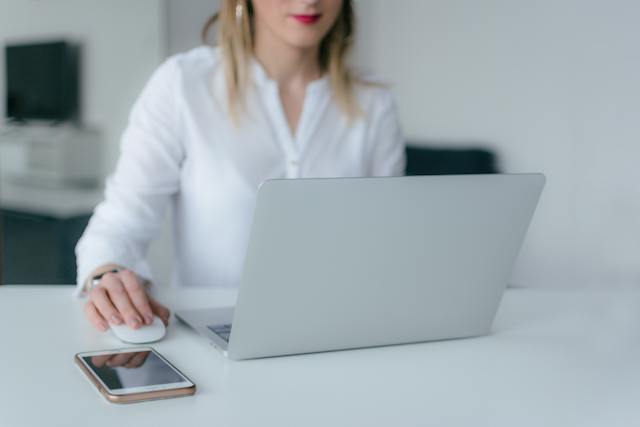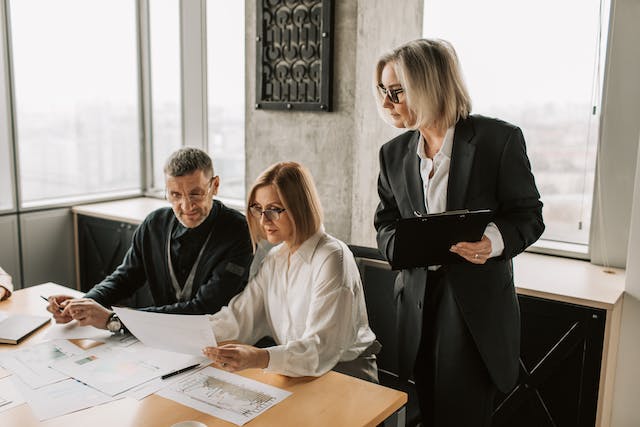The Importance of Regular Communication with Tenants and Property Owners
The Importance of Regular Communication with Tenants and Property Owners

Key Takeaways
- Clear Communication Prevents Conflict – Most disputes between tenants, owners, and property managers stem from unclear or incomplete communication. Setting expectations early minimizes misunderstandings.
- Transparency Builds Trust – Explaining lease terms, management processes, and reporting practices in detail helps owners and tenants feel informed, respected, and valued.
- Responsiveness Improves Retention – Tenants who receive prompt responses to maintenance requests and concerns are more satisfied and more likely to renew their leases.
- Strong Communication Benefits Everyone – By keeping both owners and tenants in the loop, property managers reduce turnover, lower maintenance costs, and strengthen their professional reputation.
Conflicts between tenants and property managers or property owners and property managers are a common issue in property management. They happen partly because, like all business relationships, these relationships struggle with mutual distrust between the involved parties.
The other reason conflicts happen is due to poor communication by property managers or landlords.
When the terms of a relationship, including property manager-owner or property manager-tenant relationships, are not spelled out, it leaves room for those in the relationship to make assumptions that are not correct.
Sometimes, property managers wrongly assume that some issues are common knowledge and should not be discussed. But neglecting to discuss even the most basic things with tenants and property owners can open the door to avoidable conflict.
What Does Effective Communication Mean for Property Managers?
It means clear and timely communication delivered with respect and consideration for the needs and concerns of others.
This means to not just provide property owners and tenants with all the required information, but to cultivate a habit of empathy and active listening while interacting with landlords and tenants.
When Working With Property Owners
Aligned Goals and Expectations
Property managers must never presume that they know a property owner’s goal or that their goals automatically align because they both want to make money.

It is important for a property manager to make sure that property owner’s expectations are based on reality. It is always better to under-promise and overperform.
Clarify the Terms of the Relationship
A detailed breakdown of all items contained in the property management agreement is crucial. The owner should know the duties of the PM and the limits of their authority.
The PM’s fees and how those fees are calculated should be included. It is also important to discuss the steps for terminating the relationship.
Explain Processes in Detail
How will the property manager oversee the operation of the rental? How does tenant screening work? How will the PM deal with late payment of rent and defaults?
What are the systems for ensuring adequate and up-to-date maintenance of the property? In the event of tenant eviction and lawsuits, how will the property manager handle them?
Establish Protocols for Communication
What information does the property owner want to receive and how often? What information don’t they want to get?
What are the preferred communication channels and methods for both parties? What format should reports take? Lastly, ensure that owners have a dedicated portal where they can go to get details on their property.
When Interacting With Tenants
Clarity When Discussing the Lease Terms
Every aspect of the lease agreement should be discussed. Nothing should be taken for granted. Explain all legal terms in the documents in simple words that tenants can understand.

Make sure the tenant understands the rules for late payments of rents, early termination of the lease, utility bills, and violations of the lease terms.
A Thorough Onboarding Process
It is important to reiterate every step several times when trying to get tenants to understand how a rental property operates. Important bits of information should include schedules for trash removal, cleaning, and maintenance. It is also vital to explain the processes for reporting problems, registering complaints, and resolving conflicts with other tenants.
Automated, Consistent, and Relevant Updates
Tenants need to be reminded of various things in a predictable manner. Property managers need a suite of customizable email templates for different types of communication with tenants.
The communication methods should use systems and channels that tenants are already used to, such as emails, calls, and texts, plus a dedicated tenant portal.
Prompt Response to Requests and Complaints
How quickly and effectively a property manager responds to maintenance requests and complaints frames the nature of their relationship with tenants.
Tenants want to see that their well-being is prioritized. When this is demonstrated in the form of speedy resolution of problems, those tenants will be more likely to stay for the long term.
Mechanisms for Feedback and Constructive Criticism
Property managers who create avenues for genuine feedback from tenants and also go ahead to solve the highlighted problems have fewer problems with tenants.

Instead of a relationship fraught with mutual fear and suspicion, they get to recruit tenants as partners in their progress.
Benefits of Effective Communication
Improved Tenant Satisfaction and Higher Retention Rates
Tenants who feel heard and understood are often more than happy to renew their lease. Happy tenants mean lower vacancy rates and a predictable income for the property manager.
Drastically Minimize Conflicts and Misunderstandings
Since most conflicts emerge from poor communication, clear, adequate, and timely communication will help to reduce the incidence of disagreements and misunderstandings.
Lower Maintenance Cost and Fewer Repairs
Maintaining a cordial and respectful relationship with tenants will have a positive impact on a rental’s maintenance costs. That’s because tenants view themselves as partners in the upkeep of the property.
Better Relationship With Property Owners
Property managers who communicate with clarity build trust with property owners. By providing up-to-date and full information on rent collection, expenses, and budgeting, they make the property owner’s life easier.
Bottom Line
In the end, property managers who master the art of effective communication with property owners and tenants actually help themselves. By building a reputation for efficiency, they boost their reputation and position themselves to attract higher-quality clients.
B&R Property Management is dedicated to providing both owners and tenants with outstanding service and reliable support. Contact us today to learn more!



